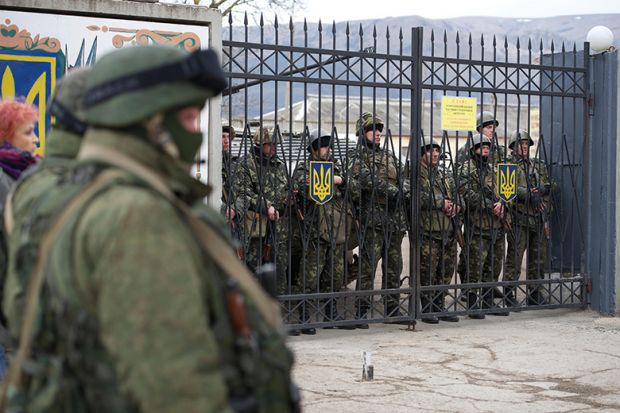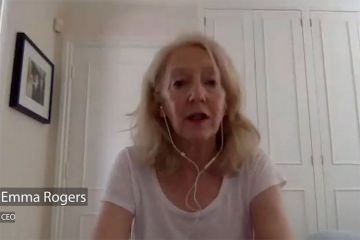Universities face being caught in a diplomatic spat between Russia and the West amid controversy over the status of a higher education institution in the annexed Crimea region.
The latest flashpoint involving V. I. Vernadsky Crimean Federal University (CFUV), which was created in 2014 after the Russian takeover of the Black Sea peninsula from Ukraine, forced the cancellation of a summit on German-Russian scientific cooperation.
The conference was due to be held in the Russian city of Kazan last week but the German Rectors’ Conference pulled out after being informed that Andrei Falaleev, CFUV’s acting rector, would attend.
A spokeswoman for the rectors’ association said that it took the decision because Germany’s foreign ministry has forbidden the country’s institutions from organising or attending the same events as residents of Crimea.
A rebuke from the Russian Ministry of Foreign Affairs followed, accusing the German side of scuppering the summit.
Professor Falaleev told Times Higher Education that the German approach was an “attempt to separate scientists” and even claimed that it was “similar to racism and genocide of a particular group of people, in this case, living in Crimea”.
Most foreign governments continue to recognise Ukraine’s claim to sovereignty over Crimea, which was taken over by pro-Russian separatists and the Russian military after the Ukrainian revolution of 2014 and annexed by Russia following a referendum that was deemed unconstitutional by the Ukrainian Constitutional Court.
The cancellation of the summit in Kazan is not the first occasion that recognition of CFUV, named after Vladimir Vernadsky, a Russian-Ukrainian mineralogist, has drawn an international response.
In 2016, Ukraine’s embassy in London condemned the International Association of Bookkeepers, a UK-based accounting body, for handing an award to the university, arguing that its creation was a breach of international and Ukrainian law.
CFUV is, in effect, a collection of existing institutions across Crimea: according to its website, it teaches more than 30,000 students, and emphasises its links with Russian academia.
It trumpets a history stretching back more than 100 years to 1918, the foundation date of Taurida University, Crimea’s first institute of tertiary education, and one of the new federal university’s constituent parts. But after the Russian annexation of 2014, some of Taurida University’s faculty fled to Kiev, where in 2016 they founded Vernadsky Taurida National University (TNU). Professor Falaleev claimed that just 0.3 per cent of staff had left Crimea for Kiev; Volodymyr Kazarin, TNU’s rector, said that the figure was more than 30 per cent.
Taurida’s flight was part of a broader exodus of higher education institutions from Crimea – 16 in total were forced to evacuate, some having been taken over by pro-Russian gunmen.
The two rival institutions now claim the same legacy and history. Last year, as TNU in Kiev marked its centenary in exile, Russian president Vladimir Putin congratulated CFUV’s “faculty, undergraduate and postgraduate students and alumni of the Vernadsky Crimean Federal University on its 100th anniversary”.
Professor Kazarin argued that the Taurida “brand” belongs “to Ukraine lawfully because it was Ukraine that founded it 100 years ago and organised its leaving for Kiev”.
Roman Palash, associate professor of mechanical engineering at Lyiv Polytechnic National University, said the boycott was justified, given CFUV’s appropriation of Taurida’s academic lineage.
“It is totally wrong for this institution to lay any claim to the history of Taurida University,” said Dr Palash.
Olenka Pevny, director of the University of Cambridge’s Ukrainian studies programme, said that Russia’s intervention in Crimea was “illegal” and “most nations have condemned Russia’s actions and continue to recognise Crimea as an integral part of Ukraine”.
“This must mean something and must carry some weight, otherwise we will be resigned to live in a lawless world where treaties, resolutions and global condemnation carries no weight,” she said.
Despite the boycott by German universities, European institutions have not maintained a united front against CFUV.
On its website, the university lists 27 partnerships, including with the universities of Basel and Algarve, despite the Swiss and Portuguese governments refusing to recognise Russian ownership of Crimea.
A Basel spokesman said that since 2008 one of its archaeologists had worked with CFUV to catalogue “unknown or only hardly studied” vases in Crimean museums.
“The University of Basel is fully aware of the delicate political situation of Crimea,” he said. “We have therefore been in contact with the Swiss Federal Department of Foreign Affairs and, through them, with Ukrainian authorities, to ensure that this singular, long-standing academic collaboration is carried out in a way that is acceptable to all sides.”
The University of Algarve agreed in 2016 to wide-ranging cooperation with the CFUV, exchanging faculty, developing joint research projects, and swapping management experience. It did not reply to a request for comment from THE.
POSTSCRIPT:
Print headline: Conference canned over inclusion of Crimea rector
Register to continue
Why register?
- Registration is free and only takes a moment
- Once registered, you can read 3 articles a month
- Sign up for our newsletter
Subscribe
Or subscribe for unlimited access to:
- Unlimited access to news, views, insights & reviews
- Digital editions
- Digital access to THE’s university and college rankings analysis
Already registered or a current subscriber? Login










